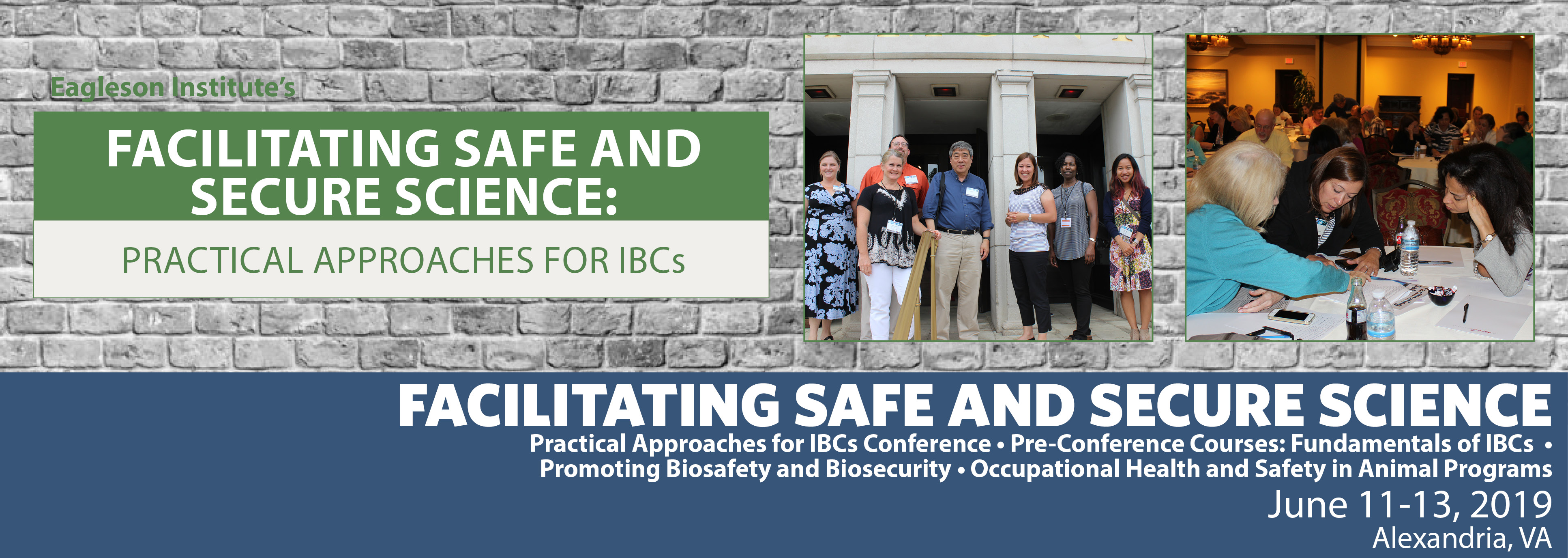![]()
PRECONFERENCE COURSE:
Tuesday, June 11, 2019, 3:00 pm – 6:00 pm
Fundamentals of IBCs and the NIH Guidelines
Kathryn Harris, Ph.D., RBP This workshop provides an introductory overview of the history, function, and administration of Institutional Biosafety Committees (IBCs). Learn about the activities of the NIH OSP, the content of the NIH Guidelines for Research Involving Recombinant and Synthetic Nucleic Acid Molecules, and the function, administration, and responsibilities of Institutional Biosafety Committees (IBCs) under the NIH Guidelines.
PRECONFERENCE COURSE:
Wednesday, June 12, 2019, 8:00 am – 12:00 pm
Promoting Biosafety and Biosecurity through Effective Governance
Kathryn Harris, PhD, RBP This will be a highly interactive class, focusing on the importance of ensuring institutions have robust and comprehensive biosafety and biosecurity governance structures in place. Information will be provided about some of the tools and best practices institutions can employ to strengthen their biosafety and biosecurity programs. Participants should come prepared to engage in discussion, information sharing, and Q & A with course instructors and other participants.
PRECONFERENCE COURSE:
Wednesday, June 12, 2019, 8:00 am – 12:00 pm
Occupational Health and Safety in Animal Programs: An Overview and Case Study
Helen Diggs, MEd, DVM, DACLAM, Senior Director, AAALAC International, John N. Norton, DVM, PhD, DABT, DACLAM During AAALAC site visits of animal facilities and programs, deficiencies are frequently found involving occupational health and safety. Prevent this from happening at your institution! This workshop will combine an AAALAC site visitor’s perspective with a facility director’s experiences. Dr. Diggs will present AAALAC International’s expectations for Occupational Health and Safety Programs, and Dr. Norton will follow-up with a “recipe for success” for implementing these expectations in an animal program. Best practices based on the “Eighth Edition of the Guide for the Care and Use of Laboratory Animals” will be explored.



